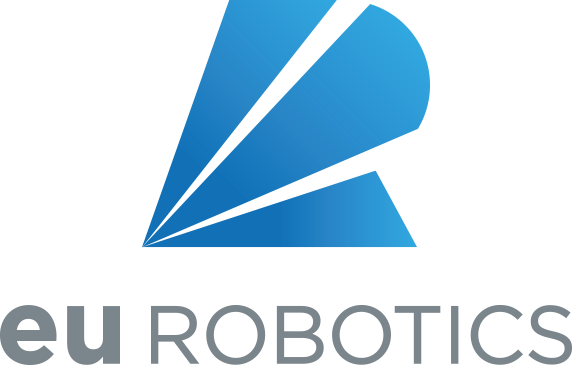Following the rotational cycle of euRobotics, eight members of the Board of Directors completed their three-year term and were eligible to stand for re-election for another three-year term.
We are glad to welcome Nabil Belbachir, George Nikolakopoulos and Kristina Wagner as new Board members and Paolo Rocco back to the Board. David Bisset, Petra Koudelkova-Delimoges and Stefano Stramigioli were re-elected, and Stefano Stramigioli also confirmed as Vice President Research.
We would also like to thank the former Directors Carlos Balaguer, Sigrid Brell-Cokcan, Bruno Siciliano, and Nicola Tomatis for their work during their time as Board members.


As they see it…
Personal Statements from the incoming Board Directors

Nabil Belbachir
“Our world is being confronted with major global challenges such as climate change, threats to the environment, food security and the pandemic crisis, which are impacting our economic growth, prosperity and even our future existence. This underlines the need for joining forces, aligning our strategies and promoting creative thinking and approaches for a global resilience. euRobotics is one of the European associations that can play a key role for enabling and paving the way for solutions to the global issues. Multipurpose robots, self-adaptive AI systems and lifelong learning autonomous systems are examples of technologies with new capabilities that can shape industries, processes and society to withstand the global threats. I am delighted to have joined the Board with the ambition and motivation to contribute in boosting research and innovation to make a positive impact on our present and future.”

Paolo Rocco
“Reliability, precision, ability to perform repetitive tasks, versatility thanks to programming: these have been the selling points of industrial robots in the last decades. We all know however that industrial manufacturing is undergoing today a significant change, shifting more and more towards the new paradigms of digitalized production.
So are industrial robotics already obsolete? Not at all, however robotics has to match the current trend in order to keep its central role in the factory of the future. This will be possible along at least three directions: a) an increasing promotion of the human-robot collaboration paradigm, with industrially relevant collaborative operations standardized; b) integration of artificial intelligence methods and tools to make robots cleverly interact with the environment; c) new developments in mechatronics, to put on the market smart and safe devices (actuators, sensors, grippers).
The role of euRobotics in driving this evolution will be essential. We are the association of institutions who best know the robots, their potentialities, and their current limits. By setting the goals through the roadmaps, while promoting the exchange of best practices through the topic groups, we as euRobotics can help Europe take the lead in the innovation of robotics.”

Kristina Wagner
“In the next 10 years, more and more people around the world will work with robots every day. Robots and automation will become mainstream. To make automation available to everyone, it must become more accessible and intuitive, and the entry threshold must be lowered. I believe that intuitive usage and flexible adaptivity will democratize robotics and lead to an exponential growth of robot-based automation. Intuitive usage makes robot-based automation accessible also to non-experts. Beside leveraging multimodal and AI technologies as well as programming assistants, the use of self-help features, forums and knowledge libraries are also crucial. A plug-and-produce experience for extensions like tools, sensors and SW will lower the entry barriers for robot-based automation, resulting in decreasing entry costs. I see a big potential for Europe having a powerful ecosystem of robot providers and extension providers to push reshoring – a topic that could come into focus in the medium term as a result of the experience of the COVID-19 pandemic. euRobotics is the platform to connect the dots between relevant technologies and stakeholders and shape the future of robotics.”

George Nikolakopoulos
“EuRobotics offers one of the most dynamic networks in Europe, while it has a huge potential to create a real impact on the way that we think about robotics and utilize them in our everyday life. My vision is to evolve euRobotics further to push the limits of current robotic technologies, creating the autonomy levels that will empower the next generation of robotic missions across a range of applications, including technologies within my personal area of interest, in robotics and trusted space autonomy. Apart from contributing further to strengthening European investment in robotics, it should be also our mission to further increase public awareness and the general evolution of our vibrant community. I am sure that euRobotics will be a super exciting engagement and I am looking forward to contributing to the future of robotic activities in Europe.”

